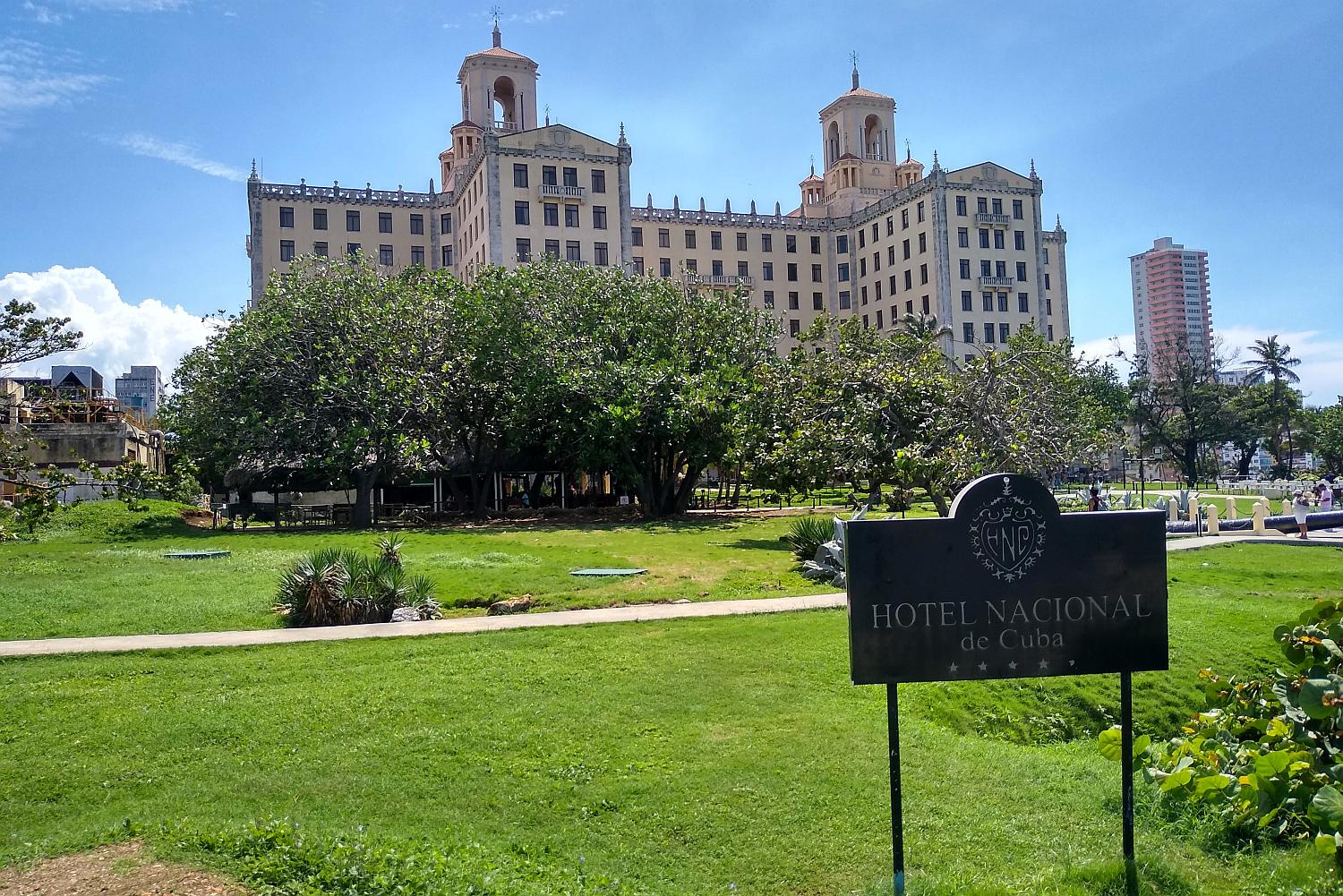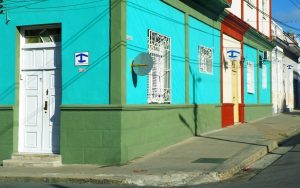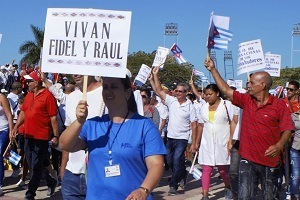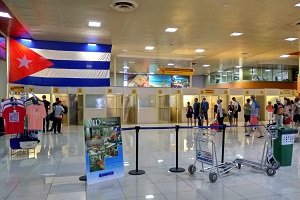Where to stay: hotels and homestays

Updated: Dec 19, 2022

Updated: Dec 19, 2022
In Cuba visitors can stay in private guesthouses. Those so-called Casa Particulares are very popular - especially for visitors that travel on a budget. As all over the world there are also hotels in Cuba. Unlike in most other countries however, you should know, that all Cuban state owned. Precisely, hotels are either owned and run by state-owned companies or operated by large international hotel chains in cooperation with the Cuban state. This distinction is important, because it is highly recommendable to stay only in houses, that are managed by an international hotel group.
Basically, it can be said that casas offer a better price-performance ratio compared to hotels. When it comes to costs, it should also be noted that higher prices for hotels are usually accompanied by a better standard. With casas, this connection is not necessarily given. Casas in the lower price segment are often well managed and offer an acceptable standard. A price comparison can therefore be worthwhile.
What you need to know about hotels in Cuba

Habana Libre Hotel (»Havana Hilton« 1958)
State-owned companies, including enterprises belonging to the Cuban military, operate many hotels all over the island. In quite a few of these establishments is not only is the service awful, but decades without investments and mismanagement has also left clear traces in the facilities and rooms. These hotels come with the atmosphere of an Eastern European youth hostel shortly before the collapse of the Soviet Union. If you don't want to end in such a house, it is advisable to choose your hotel carefully.
Fortunately, at least in the important vacation regions, cooperations are maintained between international chains and the Cuban government. Hotel cooperations concern hotels of the 4-star or 5-star luxury category. These hotels are operated primarily with Spanish hotel chains, but remain under Cuban ownership. The management by the foreign partners is carried out in cooperation with the Cuban state and Cuban employees.
Private Bed & Breakfasts: Casa Particulares
It was probably the Cuban government's realization that the state could neither create sufficient nor qualitatively acceptable tourist accommodations that led to the approval of private rental of guest rooms in addition to the aforementioned collaborations with international hotel chains.
Since the early 1990s, Cubans are permitted to accommodate foreigners in private homes. These family-run accommodations are called »casa particular«.
Particular in this context means private and refers to private renting to foreigners. In Cuba, where the state usually dominates economic activity, vehicles or even restaurants that are privately owned are also referred to as particular.
What seems to be the standard all over the world, was a long time forbidden on the socialist island. The operation of the casas takes place under license and is accompanied by the payment of a flat rate and a turnover-based tax. The tax burden is depending on the occupancy, usually about 30 to 50 percent of the income.
­
Better to stay in a Hotel or a Casa?
Both hotels and casas come with a variety of advantages and disadvantages. Therefore, it is not possible to give a basic answer to the question of which type of accommodation is preferable. Generally, hotels are more expensive. They are recommendable especially for beach vacations, because a unique feature of the hotels in the beach regions is the option of all-inclusive catering. Due to the difficult supply situation, visitors looking to relax at the beach without worrying about food supplies can hardly get past an all-inclusive hotel resort.

Most famous: Hotel Nacional de Cuba (1930)
Another advantage of hotels is the greater degree of privacy and - at least in houses of international brands - also of amenities and better service. However, these better hotels also have their price in Cuba.
Casas usually also offer catering and this usually at quite moderate prices. However, in the vast majority of cases, the range, variety and often the quality of the services offered is not comparable with hotels (see section on casas). For vacationers who can live without the service of a hotel and are not afraid of or even looking for contact with people, casas are a suitable, inexpensive alternative.
In the context described above, it is often a good idea to spend a few days in a comfortable beach hotel and then stay in casas during the round trip when traveling individually.
In Havana or other cities, only hotels of the upper or better luxury category can be recommended. Well-managed private accommodations are preferable to almost all state-run mid-range hotels. In the middle price segment, casas undoubtedly offer better value for money. In Cuba, the thumb rule is that it is better to stay in an upscale casa than in a simple (state) hotel.
­
The U.S. embargo: reasons for travel & motives for travel
Regardless of whether you want to stay in a hotel or in a casa particular, you often can't avoid a U.S. based companies when booking. It may seem paradoxical, but the market for accommodation in Cuba is firmly in North American hands. The most extensive offer of hotels can be found at booking.com. Although airbnb.com does not offer hotel reservations, it has by far the most extensive selection of private accommodations.
In order to conduct their business in Cuba, these U.S. companies have received special permission from the U.S. government. However, they have been required to question the reason for travel when making bookings. This determines for U.S. citizens whether travel to Cuba is permitted.
Since the information is required for all bookings on American websites, it unnecessarily confuses non-US citizens. For all other visitors, the reason for travel has no practical significance.
In this context, non-US citizens can use any reason for travel given in the list. If you are still in doubt, it is best to choose "Support for the Cuban people" (at airbnb: »Support for the Cuban people«). This information is always correct, because every trip to Cuba supports the local people without a question.
Statements (circulating on the Internet) that non-US citizens would face fines or other sanctions if they traveled to Cuba are false. If the U.S. government wanted to further isolate Cuba, it could at any time take back the special permits that had been granted.
In fact, such destructive imperialist actions, unfortunately, cannot be ruled out. Only recently - in October 2019 - U.S. airlines were deprived of the permits - granted only a few years ago - to fly to Cuba. Only Havana airport remained exempt from this restriction. In addition, foreign airlines were forced to cancel existing leases with the Cuban government under threat of sanctions, resulting in a significant impact on domestic air travel. Cruise ships were also prohibited from docking in Cuban ports.
­
Hotels in Cuba: What to expect
As described, there are state-owned and semi-state-owned hotels in Cuba that are operated in cooperation with foreign hotel companies.
Purely state-owned hotels are simply equipped and often have poor management. Considerable renovation backlogs must be expected in the facilities and rooms. Only a few of the state hotels have been renovated in recent years and are in acceptable condition.
The state-run hotels are operated under the brands Gaviota, Gran Caribe, Islazul and Cubanacan. To get a realistic picture of the category of the hotels, in most cases at least one - but often two star(s) - have to be deducted.
The hotels managed with foreign partners, however, fall into the upscale or luxury segment. They usually have acceptable to good quality rooms, service and catering. Overall, however, the hotels operated in cooperation are also somewhat below international standards.
With 20 hotels, the Spanish Iberostar chain operates the most cooperative ventures, closely followed by the Meliá Group with 17 properties. Recently, two Kempinski hotels in the 5-star superior category have opened, one in Havana and another on Cayo Guillermo. Most of the cooperation hotels are located in Varadero, Havana or one of the keys.
In smaller towns there are often no hotels managed by international chains, so you should consider staying in a casa.
The distinction between state and cooperative hotels is also reflected in the food served. While the state-run establishments primarily serve Cuban food, international chains serve a bigger variety of imported foods to their guests.
­
Casa Particular
Travelers who want to stay inexpensively or individually can stay in a casa particular. Most casas are rooms within the apartments or houses of the landlords. These private guesthouses are run more or less professionally run. Even if there are owners who run a sort of small family hotel with several guest rooms, most casas are more comparable to a small, semi-professional bed & breakfast.
For many independent travelers, casas are the most popular accommodation option, as they not only allow for quite affordable stays, but in many cases provide an authentic insight into a Cuban household. The obligatory points of contact allow for a variety of exchanges. However, guests are usually also granted sufficient privacy if desired.
In larger towns you will find a suitable casa for every need and budget. Depending on the season, location, type and equipment of the accommodation, the prices for a double room range from ten to several hundred dollars. Especially in Havana you can choose from a wide range of luxurious accommodations.
High-end travelers can choose between penthouses, rooms in magnificent colonial buildings, lofts and suites in chic boutique hotels. For those who prefer a more private setting, there are also rooms with separate entrances or completely self-contained apartments.




